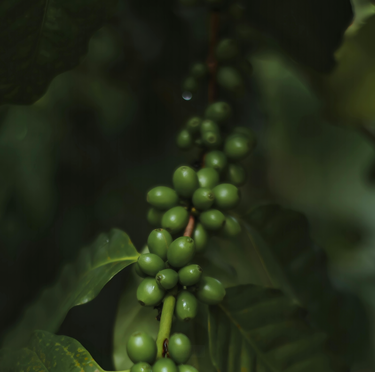Traditional
May’s Traditional subscription coffee is from the Eastern highlands of Papua New Guinea and is named Lamari after the river that runs through the region. This is a coffee we have purchased for a few years now, and continues to deliver well on great sweetness and versatility when it comes to brewing.
Coffee beans from Papua New Guinea are some of the lesser seen in the speciality sector. The remote setting of the farms as well as poor road networks has made accessing these coffees difficult. But with the help of our partners in PNG we have found a reliable and consistent supply chain for coffees from the region.
The Lamari coffee is rich, sweet and indulgent with notes of Molasses, Stone Fruit & Gingerbread.
Espresso brewing is a great way to coax out each of these flavours, and the resulting shot works very well with milk. Even cutting through larger volumes like in a latte. This coffee is also very forgiving when brewed using a stove-top. Using our classic 1:2 brew ratio is ideal, but a 1:3 will highlight more of the stone fruit and some nice aromatics.
This coffee really packs a punch, and is heavy on the mouthfeel and long on the finish. If more delicate and subtle flavours are your thing - you could always try our Discovery Subscription which this month is a natural processed Ethiopian coffee.
Please get in touch with your thoughts or questions, and check out our brew guides for more detail on those brew ratios!
DISCOVERY
May’s Discovery subscription coffee is a natural processed Ethiopian coffee from the area surrounding Demicha village.
Whilst we would still call this a single origin coffee, it in fact is produced by a smallholder group who each deliver their fresh picked cherries to a centralised mill for processing. This method is common in East Africa and enables small-scale producers to access a larger market place, and ultimately make better returns on their harvest.
This coffee has been sun-dried as whole cherry in order to emphasize the fruit, floral and sweet flavour of the coffee. This process uses less water than the more common washed process, and often commands a higher price.
When brewing you should expect to find lots of heady florals and bright sparkling flavour - think Parma Violets, Blueberry & Citrus. And don’t be too alarmed at how specific these notes are, this just gives you an idea of what to expect. The lavender-like fragrance really does translate to the taste, but natural fruit sweetness then balances this out.
This coffee works particularly well when brewed with a v60, or other pour-over style such as Chemex. These highlight the delicate fruit notes and aromatics. Whereas an AeroPress or cafetière will make those fruit notes sweeter, heavier and more jammy.
If you like the sound of something with more punch, or better suited to milk drinks - you could always try our Traditional Subscription, which this month is from Papua New Guinea.
As always, get in touch with any feedback or questions, and do check out our brew guides if you need help getting started.






